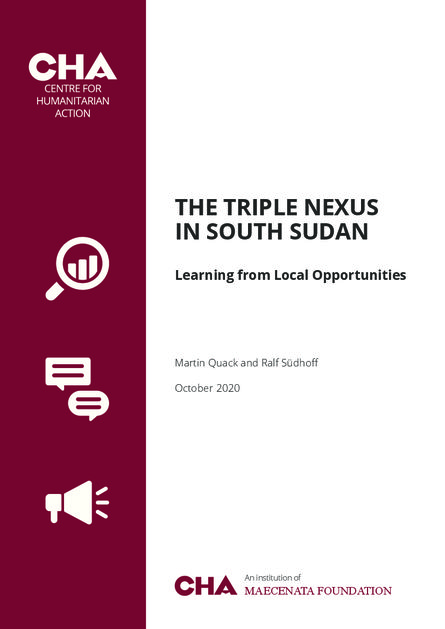
South Sudan is a poignant case study for understanding the opportunities as well as the more controversial ideas within the Humanitarian-Development-Peace Nexus. The characteristics of the protracted crisis in the country, its root causes and the long-standing experience with a pragmatic, integrated approach on community level make the Triple Nexus for local actors an interesting way forward. While an integrated Triple Nexus approach poses risks of instrumentalising humanitarian action, humanitarian actors do not perceive humanitarian principles to be in danger in South Sudan.
The call for more locally-led humanitarian action and the related localisation processes are further reasons to take the Triple Nexus idea seriously in this context where international agencies can learn from local actors and the latter’s capacities. A Triple Nexus approach in South Sudan provides substantial potential given that a series of criteria are met which further CHA research has identified as relevant for analysing in which local contexts the Nexus can result in a helpful overcoming of silos: With local ownership, local capacities, a peace-related UN approach and limited external security interests in place, South Sudan has the potential to become a concrete example of action in the so far rather abstract Triple Nexus debate. However, an identified ‘triple donor paradox’ might represent a major obstacle to progress, with donors promoting a Triple Nexus approach while keeping budget lines in silos, inflexible and limited.
